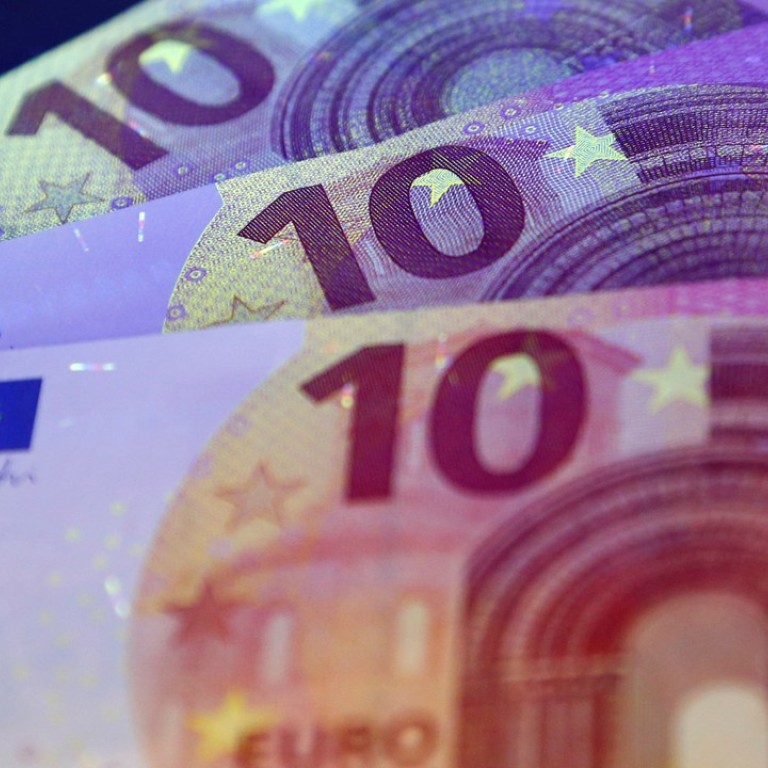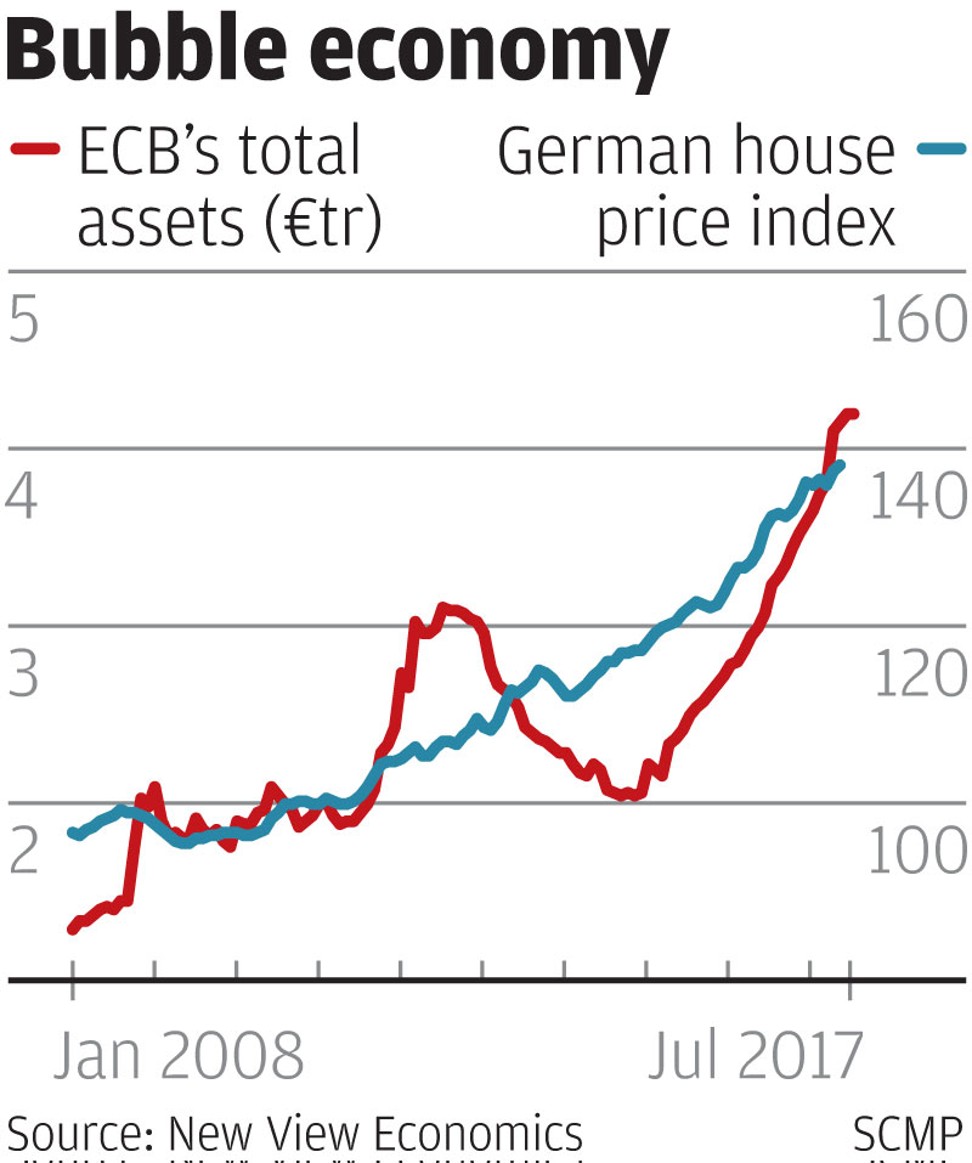
The euro is about to rocket higher thanks to Germany
‘As speculation mounts around the ECB’s intentions, the euro should be setting its sights on a move to US$1.20 to US$1.25 in the coming months’
Germany’s “have-it-all” economy is getting too much of a good thing right now. Consumers are buoyant, business is booming and Germany’s financial markets are having a ball. Everything is looking up with no signs of a “taper tantrum” anywhere to be seen.
It all looks very different to Germany’s sclerotic past in the 1990s when its economy was nicknamed the “sick man of Europe”. Fast-forward two decades later and Germany’s economy is thriving. A little bit too much for hardline monetary policymakers in the Bundesbank, Germany’s central bank.
Germany might have dragged itself out of the mire through hard work and a radical turnaround in productivity with the blessing of its compliant workforce, but the economy is beginning to run white hot. Blame it on negative interest rates and the overabundance of easy money being pumped into the economy from the European Central Bank’s quantitative easing programme.
The Bundesbank simply wants to insulate Germany’s financial sector from unnecessary future shocks
The trouble is the ECB’s “money-printing” has been a one-size-fits-all antidote to cure the euro zone’s ailments after the 2008 global financial crash. Cheap money and the resulting weak euro are fine if you are distressed economies like Greece, Portugal and Spain. Even weak economies like France and Italy have done better under the monetary balm of quantitative easing. Every little bit helps.
But for Germany, quantitative easing has been like throwing fuel onto the fire and the economy is looking superheated. Low interest rates have boosted the demand for credit and ramped up Germany’s housing market. Thanks to the weak euro, exports have boomed, pushing up the country’s trade surplus, now the world’s biggest. Economic confidence is running close to record highs.
German headline inflation is hardly a problem, currently at 1.5 per cent and below the ECB’s 2 per cent target. But that is not to say it will stay that way. Alarm bells are already sounding, especially in Germany’s domestic housing market, which is normally quite placid. Thanks to the impact of cheap credit, nationwide property prices have jumped 40 per cent since 2010, while for Germany’s major cities, the house price surge has been even higher at 60 per cent.

The Bundesbank believes this is a worrying precursor to future domestic overheating, needing higher interest rates and a reversal on quantitative easing flows to cool things down. The fact that ECB president Mario Draghi is already raising the curtain to tougher policy later this year should be no surprise. Draghi is simply dancing to the Bundesbank’s tune.
Once a reversal in ECB super-stimulus becomes clear there will be negative consequences
In reality, Germany is in the policy driving seat and setting the agenda for policy tightening ahead. No wonder global currency traders are beginning to view the euro as a better market bet than the US dollar, especially in the wake of Federal Reserve chairman Janet Yellen intimating a less hawkish line on US monetary policy intentions in recent weeks.
Relative interest rate perceptions are indeed giving much better substance to the euro’s rally against the dollar, rallying from US$1.04 at the start of the year with a sustained break of US$1.15 looking on the cards very soon. As speculation mounts around the ECB’s intentions, the euro should be setting its sights on a move to US$1.20 to US$1.25 in the coming months.
Once a reversal in ECB super-stimulus becomes clear there will be negative consequences for equities and bonds. On the equity side, there is likely to be a major setback for European markets, which have benefited enormously from investor inflows driven by quantitative easing in recent months.
On the bond side, higher short-term interest rates mean the rally in government bonds will come to an abrupt end and long-term yields will begin to climb again. This should be a welcome development for the Bundesbank though as domestic savers and investors have been starved of decent fixed-income returns in recent years, especially while much of the German yield curve has been steeped in negative yield territory.
To be fair, all the Bundesbank wants is a return to better financial stability. Negative interest rates and ultra-low bond yields have pushed German banks, pension funds and life assurers into increasingly higher-risk investments on the lookout for better returns, exposing them to greater vulnerability in the process. The Bundesbank simply wants to insulate Germany’s financial sector from unnecessary future shocks.
Changes are coming and it means the investment landscape will become much more challenging as conditions tighten. While the euro looks set for better times ahead, European equity and bond markets are fast approaching a much less settled future.
David Brown is chief executive of New View Economics


